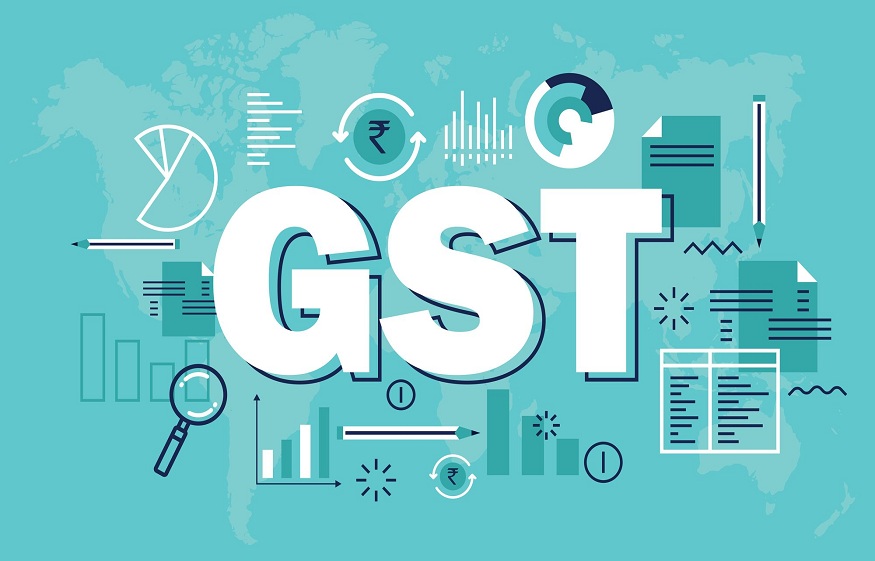GST on Life Insurance: All You Need to Know

Goods and Services Tax (GST) was introduced in the year 2006 and came into effect in 2017. Since then, it has been at the heart of many a conversation, and rightfully so. The launch of GST impacted several sectors and changed their taxation structure. Similar tremors were felt in the life insurance industry as well. The insurance industry comes under the services sector, and hence, GST is implemented on life insurance plans as well. For the average policyholder, the major effect of GST implementation was a slight increase in premiums. While some may look at the premium hike negatively, experts believe it is a sign of the taxation in India getting simplified.
Here is all you need to know about the application of GST within the life insurance sector.
What is GST?
Firstly, it is important to understand what GST is and the context in which it was introduced. Before GST, goods and services went through several indirect taxations at different stages of their production and distribution. These would result in a long list of indirect taxes that would ultimately impact the end customer, resulting in high costs. GST essentially replaced these multiple taxes as a single, indirect tax. Some of the taxes replaced by GST include state sales tax, central sales tax, entry tax, surcharge, CESS, and so on.
Many of these taxes were present in the life insurance industry as well, which affected the premiums.
What is life insurance and how does it work?
Some clarification on what life insurance is and how it works is also required. A life insurance policy is essentially a contract. When you sign it, you receive the security of a life cover from the insurance company. In return, you pay a premium. This premium includes the several costs that are borne by the insurer for managing the risks on your life. It also includes compensation for the taxes that were borne by the insurer in the process of providing you with life coverage services. You can get an estimate of the premium you may incur with the help of a life insurance premium calculator.
If the policyholder passes away under the conditions mentioned in the policy, the insurer is liable to provide the life cover amount to the beneficiaries.
How does GST work in life insurance?
Earlier, some of the taxes that were included in life insurance premiums were service tax, Swachh Bharat tax, Krishi Kalyan cess, and so on. These amounted to a total of 15% of the premium. The replacement of these taxes by GST increased the tax quotient of the premium to 18%. This also resulted in an increase in the premium of life insurance plans. An interesting thing to note is that GST is levied differently on various life insurance products.
- On premiums of term life insurance plans and ULIPs (Unit-Linked Insurance Plans), the GST is levied at a rate of 18%. Within this 18%, the taxes on the fund management charges are covered as well.
- On endowment plans, which are essentially life insurance plans with a savings component, GST is applied depending on the year of the premium. So, for the first year, the premium payments include a 4.5% GST charge, while in the following years, the GST is levied at a rate of 2.25%.
- The lowest GST, at the rate of 1.8%, is applied to single-premium annuity policies.
The hike in the premium should not be taken as a disadvantage. Rather, it has led to what is a tight competition between life insurance companies as to who can provide the best services at the most affordable rates. It has also eased things for insurers, who have a lot fewer taxes to deal with.
What’s more, there are many ways you save on your direct taxes even with high life insurance premiums.
Ways to save tax on life insurance
- You can claim tax deductions against the premiums you pay for life insurance, according to Section 80C of the ITA, 1961. The maximum deduction you can claim here is Rs 1.5 lakhs.
- The death benefit pay-out, the surrender value pay-out, and the maturity benefit pay-out are also exempted from taxation, given that certain conditions are met.
- If you have opted for a critical illness rider, then you can claim tax deductions up to Rs 25,000 against the premiums paid for the same, under Section 80D.
It is advisable to use tools such as the life insurance calculator and reach out to a financial advisor before you go ahead with signing the policy.

 The Benefits Of A Travel Insurance Policy That You Should Not Miss On Your Next Trip
The Benefits Of A Travel Insurance Policy That You Should Not Miss On Your Next Trip  Reasons why buying Medical Insurance in your 20s is a Good Idea
Reasons why buying Medical Insurance in your 20s is a Good Idea  What Is Group Term Life Insurance?
What Is Group Term Life Insurance?  Do Health Insurance Plans Offer Coverage for Vector-Borne Diseases?
Do Health Insurance Plans Offer Coverage for Vector-Borne Diseases?  Why You Need to Hire an Insurance Fraud Investigator
Why You Need to Hire an Insurance Fraud Investigator  How a Healthy Living App Fits Modern Life
How a Healthy Living App Fits Modern Life  Reasons To Improve Call Connect Rate
Reasons To Improve Call Connect Rate  Motor Coach Service for Corporate Retreats: A Smart and Comfortable Choice
Motor Coach Service for Corporate Retreats: A Smart and Comfortable Choice  Importance of F & I Training Solutions
Importance of F & I Training Solutions